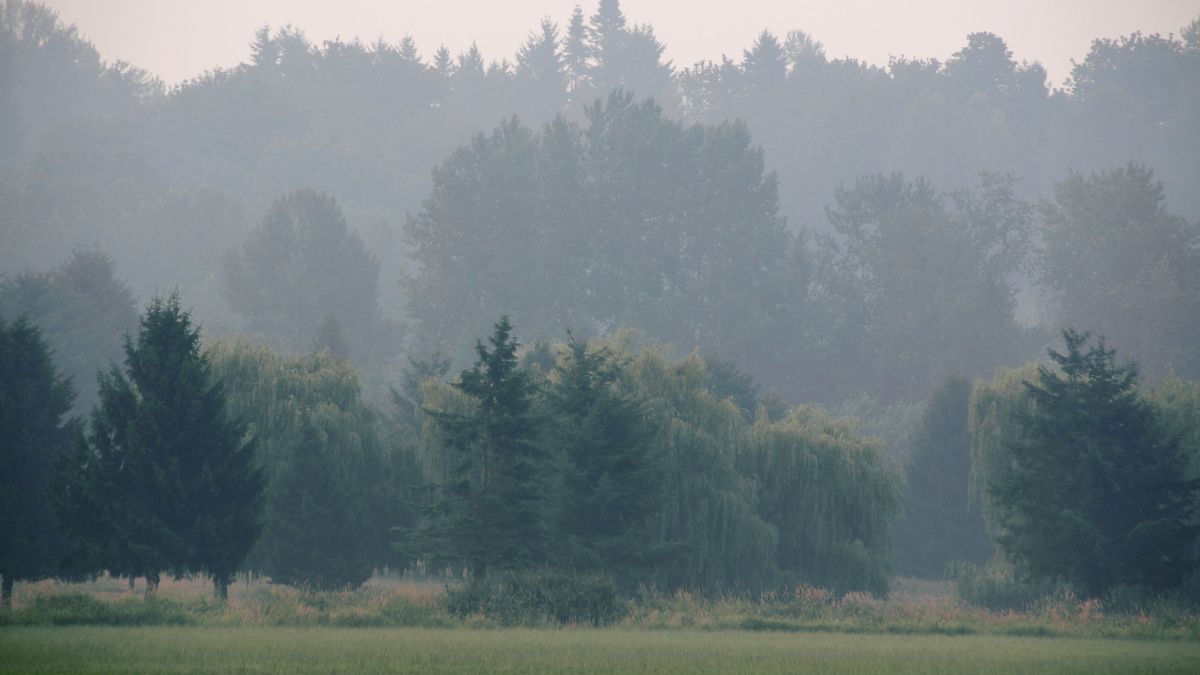Residents Encouraged to Monitor Air Quality, Protect Public Health and Reduce Air Pollution

![]()
Residents Encouraged to Monitor Air Quality, Protect Public Health and Reduce Air Pollution (Springfield, IL) — Following the historic impacts of the 2023 wildfire season, the Illinois Environmental Protection Agency (Illinois EPA) and Illinois Department of Public Health (IDPH) are encouraging residents to routinely monitor air quality to protect their health and reduce contributions to air pollution. Like the weather, air quality can change from day to day. The Illinois EPA issues daily air quality forecasts, based on the federal Air Quality Index (AQI), for 14 sectors in Illinois and posts the information at www.airnow.gov. The AQI is a color-coded system that classifies air quality from Good (Green) to Hazardous (Maroon).
In 2023, as a result of wildfires, Illinois experienced air quality conditions that had not been recorded in recent decades. Illinois officials want to ensure residents take precautions to protect their health and limit exposure when air quality conditions decline. In addition to the AirNow.gov website, residents can subscribe to FREE air quality forecasts and alerts through the EnviroFlash program and download the Free AIRNow App for iPhone and Android phones.
“Checking the local air quality should go hand-in-hand with checking local weather, and AirNow.gov is a valuable resource, especially for individuals with respiratory and pulmonary disease,” said Illinois EPA Director John J. Kim. “Illinois EPA continually monitors air quality conditions throughout the state and makes real-time data available as well as forecasted air quality so residents can plan your day accordingly.”
“Smoke from distant wildfires can impact air quality right here in Illinois,” said IDPH Director Dr. Sameer Vohra. “Poor air quality can lead to respiratory issues and other health concerns, especially in the very young, very old, and those who are medically vulnerable. Please use the free AIRNow app to understand your current environment and then take the appropriate precautions to protect yourself and your loved ones from the effects of poor air quality.”
Following 2023 air quality conditions, Illinois officials established new Illinois-specific guidelines for issuing air quality messages to the public and to provide additional guidance for public health measures. The Illinois EPA has incorporated all 14 sectors where air quality is forecasted in Illinois into the Air Pollution Action Day program, expanding the existing program beyond the Chicago Metropolitan Area (Cook and surrounding counties). These air quality messages are a call to action for residents to protect their health and for residents and businesses to reduce local contribution to air pollution such as reducing transportation, keeping your vehicle and other engines properly tuned, using environmentally friendly paints and cleaning products, and conserving electricity.
An Air Pollution Action Day is issued the afternoon before and will run from issuance through the next calendar day. Conditions that will trigger an Air Pollution Action Day/National Weather Service Air Quality Alert* are:
- Chicago Air Pollution Action Day = Air quality is forecasted to be at or above the Orange or “Unhealthy for Sensitive Groups” category of the AQI for two or more consecutive days for the Chicago Metropolitan Area (Cook and surrounding counties).
- Statewide/Areawide Air Pollution Action Day = Air quality is forecasted to be at or above the Orange or “Unhealthy for Sensitive Groups” category on the AQI either Statewide or in nearly all Illinois sectors.
- Red Air Pollution Action Day – Air quality is forecasted to be at or above the Red or “Unhealthy” category on the AQI for any sector in Illinois.
*Historically, the National Weather Service has considered an “Action Day” forecast as an Air Quality Alert.
Individuals most at risk due to elevated air pollution, including particle pollution and ground-level ozone, are those with respiratory or pulmonary disorders, as well as children and adults who are active outdoors. Sensitive individuals should follow their doctor’s advice. Some symptoms to look out for include wheezing, coughing, a fast heartbeat, tiredness, chest pain and shortness of breath. If symptoms worsen, you should call your physician or 911.
All residents should keep cool and limit physical activity outdoors when air quality is unhealthy (Red) according to the Air Quality Index. Illinois residents are also encouraged to take the following actions to protect themselves when air quality is unhealthy:
- Stay indoors and monitor your breathing, especially if you have heart or lung disease, and keep windows and doors closed.
- If your air conditioner has a fresh air intake, set your system to recirculate or close the intake.
- Use high efficiency filters in air conditioning systems and portable air cleaners.
- Avoid activities that create more particulate matter indoors, like smoking or burning candles.
- If you cannot avoid working or other outdoor activities, then choose shorter or less intense activities, consider rescheduling if possible, and take more frequent breaks.
- Consider wearing a high-quality N-95 or N-100 mask to filter damaging particles while outdoors.
Residents and businesses can also take actions to reduce contributions to local air pollution such as reducing transportation, keeping your vehicle and other engines properly tuned, using environmentally friendly paints and cleaning products, and conserving electricity.
Residents Encouraged to Monitor Air Quality, Protect Public Health and Reduce Air Pollution








Responses